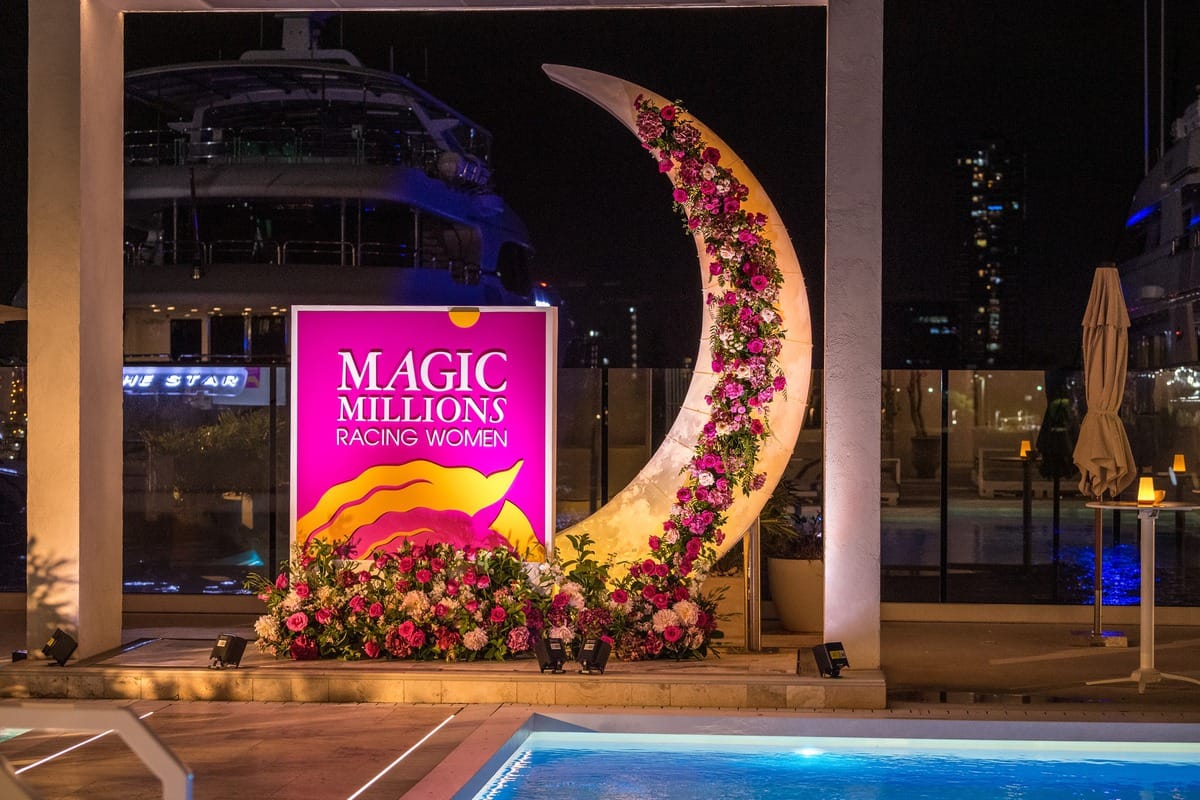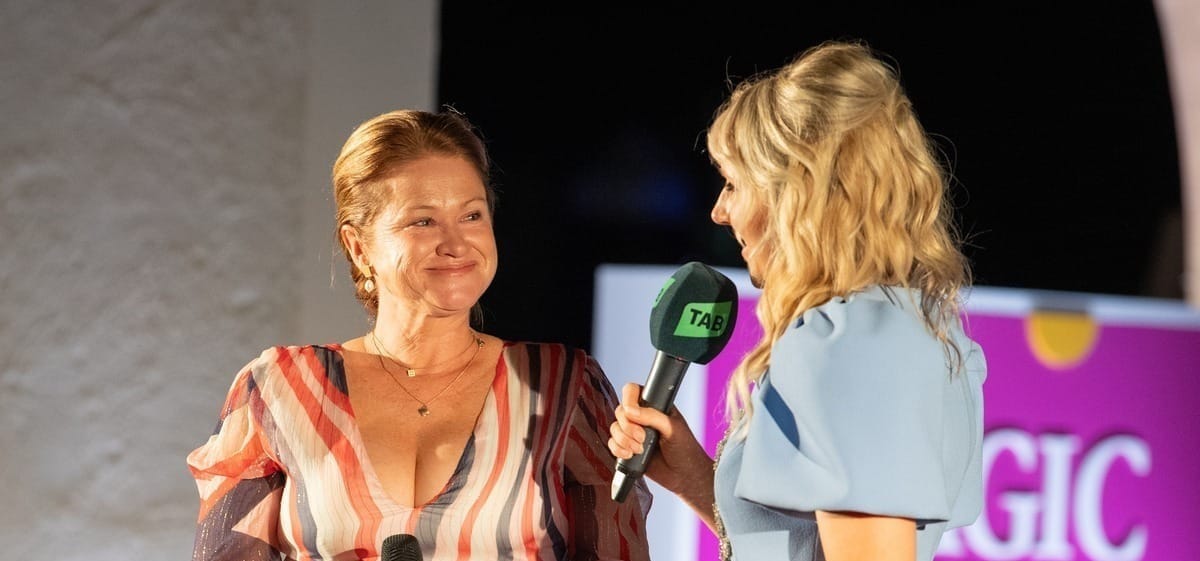Until now, only Lindy Maurice knew how close the Pony Racing Series concept she has pioneered was to running out of funding.
“Come April, we’re basically out of money,” she told The Straight. “I raised enough for the Pony Racing Series, and that Series finishes in April, and after that there will be no money left.”
On January 6, quayside at La Luna Beach Club on the Gold Coast, Maurice was awarded National Racing Woman of the Year.
It was the first year of the award and few in attendance that night could have known how high the personal stakes were.
Maurice’s award was for exceptional industry contribution via her creation of the much-loved, much-publicised National Pony Racing Series. It came with a $50,000 Racing Women scholarship.
The National Pony Racing Series kicked off last year and, through six state qualifying races leading into a national final in Sydney during the upcoming autumn, it has drawn children into the racing scene in alliance with Pony Club Australia.
The concept isn’t new to the world, with Ireland, England and France all boasting a national pony racing structure, but in Australia it was revolutionary.
To be eligible for her award, Maurice had to outline how she would use the $50,000 scholarship. The judging panel needed to be satisfied that the money would be for industry benefit and not for personal gain. For Maurice, however, it was a gifted lifeline.
“The money from TAB just keeps us alive for a bit longer,” she says.
At the La Luna Beach Club, Lindy Maurice needed no introduction. Since 2019, she has been the face and founder of Thoroughbred Industry Careers (TIC), one of the formative education pathways for school-leaver entry into the thoroughbred industry.
TIC’s Explorer Cadetship was a 12-month program that enrolled young people into a broad course that gave them entry-level qualifications, and connections, to work in the racing and breeding industries. It was groundbreaking, delivering the industry a new source of employment at a time when farms and racing stables were screaming out for staff.
Maurice was TIC’s tireless cheerleader, championing her cause through almost all states of Australia. But in mid-2022, the NSW state government closed the Richmond TAFE equine courses, which hosted the TIC program, and the whole concept fell to its knees.
Despite petitions and protests to save the Richmond courses, it was fruitless, and Maurice was suddenly without a home for her cadetship, and she’s been scrambling since for a new venue. Industry identities like John Messara, Vin Cox and Chris Waller’s Charlie Duckworth have supported her heavily through the events of the past 18 months, which Maurice describes as ‘heartbreaking’.
“It was devastating because we’d essentially knocked together our ‘British Racing School’ in Richmond, and we fought really hard to save it,” she says. “After they closed it down, I was so gutted that I nearly gave up. If it wasn’t for John, Vin, Chris and Charlie, I reckon I’d be stacking shelves at Woolies, I kid you not.”
The importance of TIC’s cadetship cannot be understated. In 12 months, it was creating track riders, stable hands and farm attendants out of school leavers who often had no experience with horses, let alone racehorses.
“We were taking kids from all over Australia and educating them properly, teaching them to ride trackwork in 12 weeks when they’d never been on a horse,” she says. “We were stripping away those barriers in an industry that talks a different language and that’s very foreign to outsiders trying to enter. It was just devastating to all of us to lose it.”
“Come April, we’re basically out of money. I raised enough for the Pony Racing Series, and that Series finishes in April, and after that there will be no money left” - Lindy Maurice
In the middle, Maurice’s pony racing concept was ongoing. She saw the ponies as a way to promote racing to a young equestrian audience.
If children already into horses and active in the equestrian space could participate in a safe, enjoyable (and televised) event at a major metropolitan raceday, wouldn’t it promote the racing industry to the next generation?
“When Richmond TAFE was shut down, we were asking what was next on the document,” Maurice says. “Pony racing was always in the plan, but with the closure of TAFE it meant that the team at Richmond, who were so bloody good at their jobs, could remain employed via the pony racing. Their skill sets were perfect for it.”
It sounds straightforward, almost like Maurice had created a new gig to replace the old. The reality is far different because instead, Maurice has run into a similarly ugly level of bureaucracy that has derailed her efforts to establish a national pony racing structure.
“We want to make pony racing a standalone national thing, a fully fledged sport of its own in Australia,” she says. “But how do we do that? Do we make it an affiliation of Pony Racing England, for instance? How do you grow a sport like this in such a huge country like this one?”
Maurice’s $50,000 scholarship will be devoted to answering these questions. She will travel to England, Ireland and France to witness their models firsthand, but her local reality is that she needs the sport to be nationally funded for it to be viable. In other words, funded by Racing Australia.
The fractiousness at Racing Australia between all the Principal Racing Authorities (PRAs) means that the National Pony Racing Series is low on the funding agenda, if it’s there at all, and, once again, Maurice feels let down by the power brokers in Australian racing.
“It’s been the most challenging thing I could ever imagine taking on,” she says. “I had no idea when I started all this that it was going to be so hard, and because of the fragmentation in our industry mainly. Because of that impasse, nothing is funded at a national level and these are things the industry needs.
“In England, they’ve got no prizemoney but they fund the British Racing School and their pony racing, and all these amazing, grassroots pathways. We just don’t seem to get it here, it blows my mind.”

Relief was the overwhelming emotion for Maurice at last week’s windfall. Here is a woman who epitomises how difficult it is to execute anything at a national level in Australian racing.
“Within the industry, most of the key people know what we do,” she says. “But there is still not a huge amount of awareness out there for what we do in that broader racing community. So this award brings real awareness to the work we’re doing.
“It’s not so much about me winning as amplifying the work we’re doing and the importance of it. That’s how I view it because whatever I do is with a team and it’s very much not an individual effort.”
Maurice is hopeful that, like many concepts, these are the difficult, formative years of pony racing in Australia and that sooner or later it will be established and nationally funded, and she won’t be the battling face of it. Reluctantly, she’s had to embrace the spotlight to push her cause, but she’s looking forward to not having to do that.
“In time, I’d like to see pony racing where it will be a fully fledged organisation and not Lindy Maurice’s,” she says. “Of course I’ll still be involved, but it will never be about me and I never set out for it to be about me.
“I’m just the woman with a bee in her bonnet that we’re not doing a good job in this area. I wanted to see things change and, especially after events like last weekend, it makes me think I can’t really quit now.”




